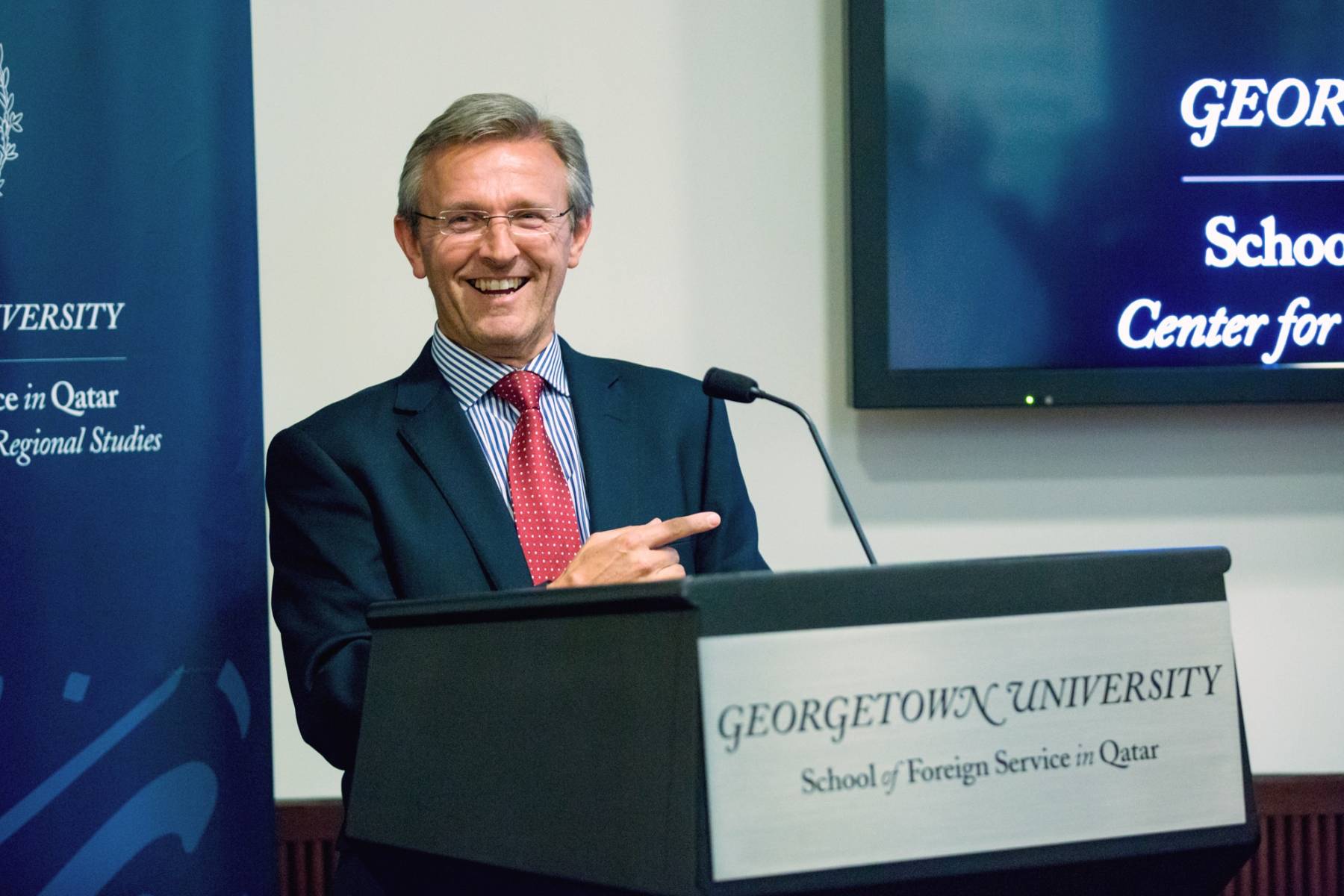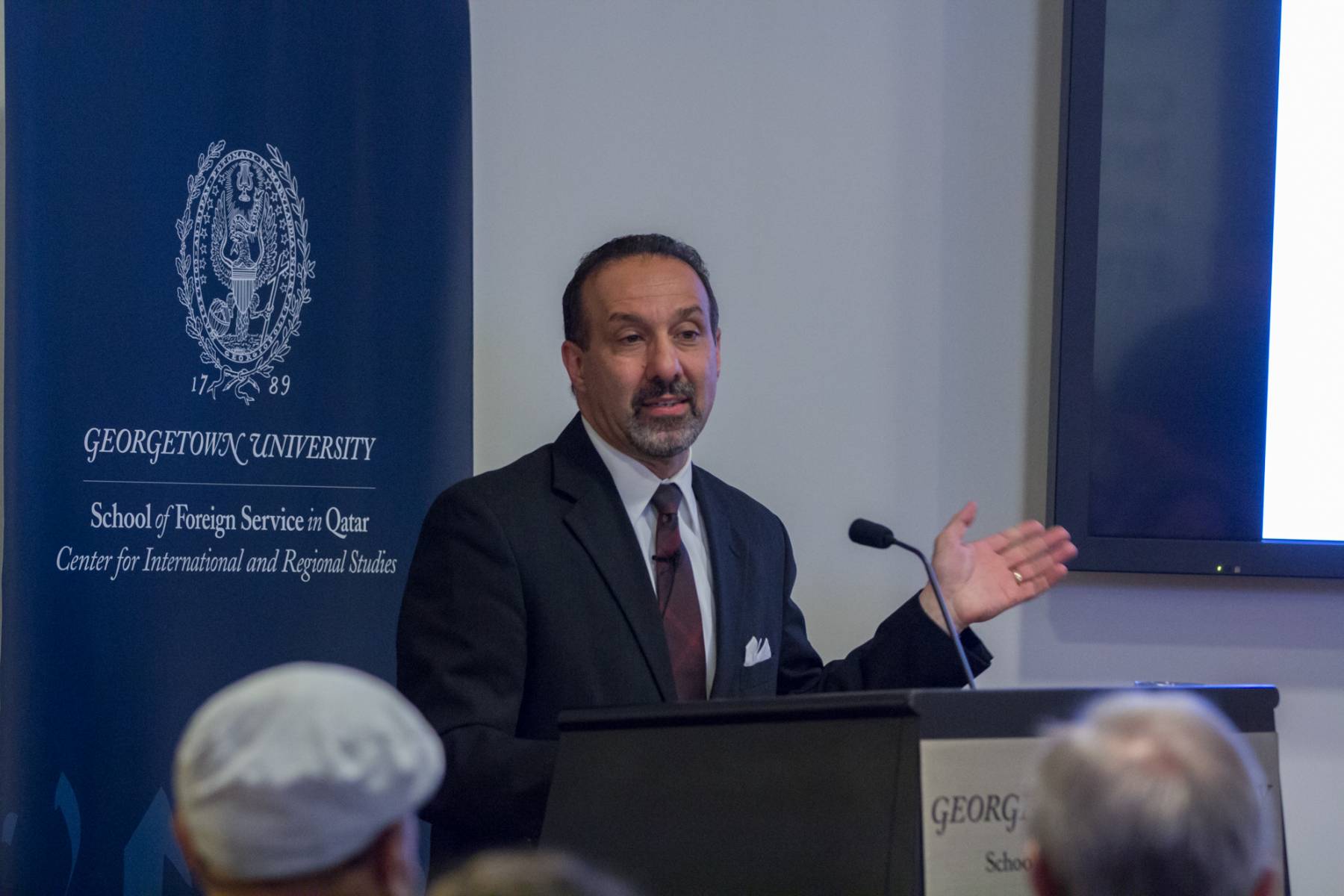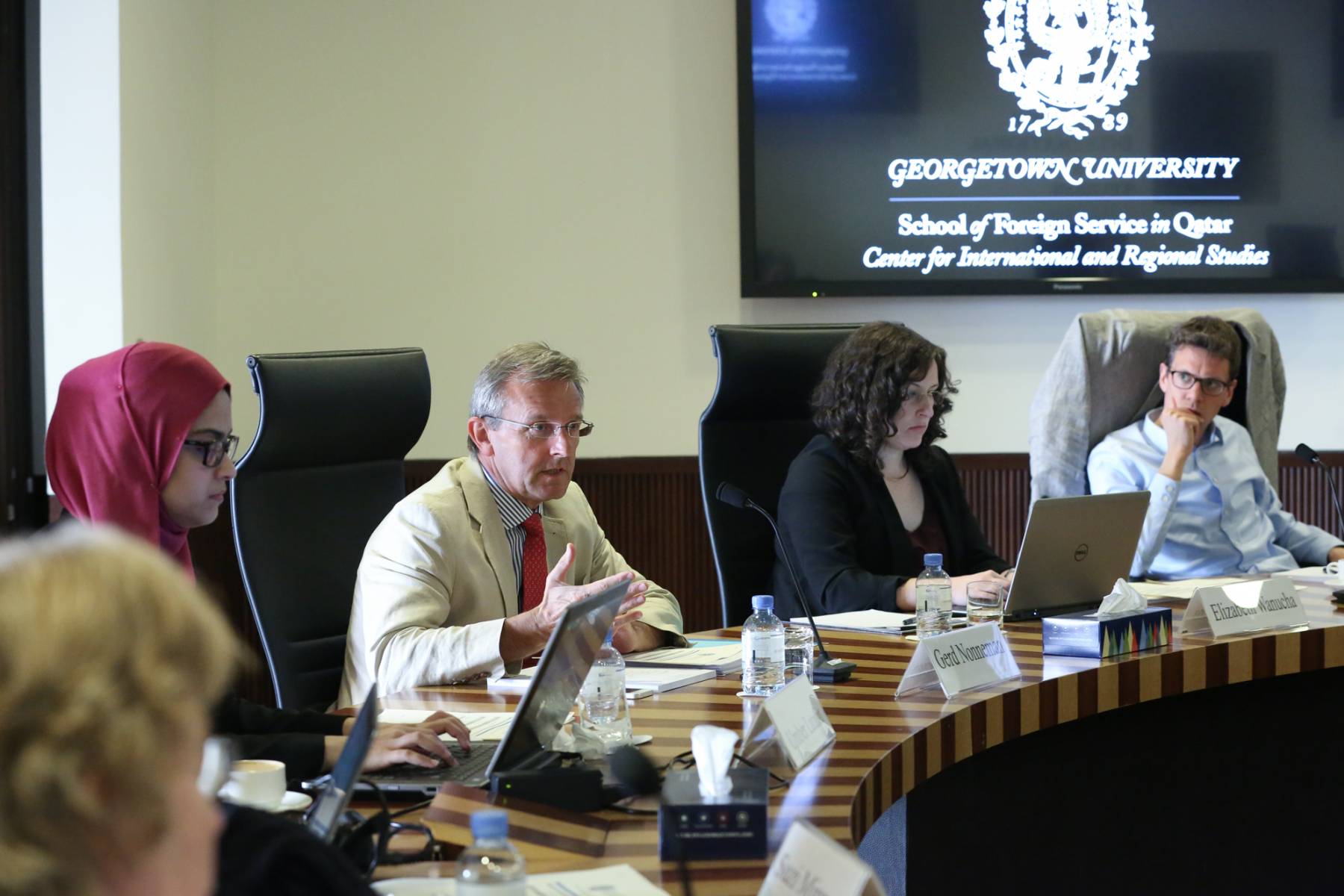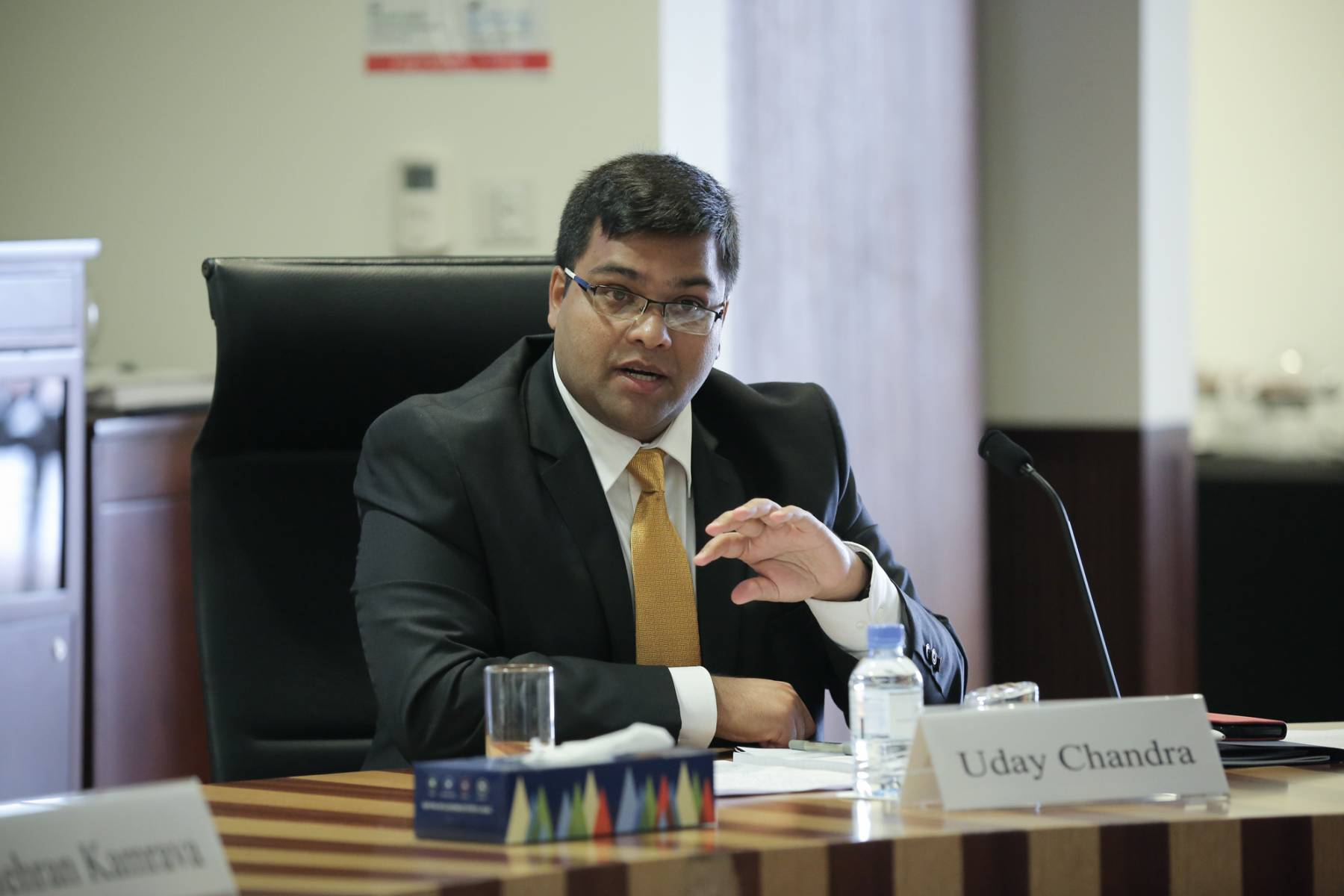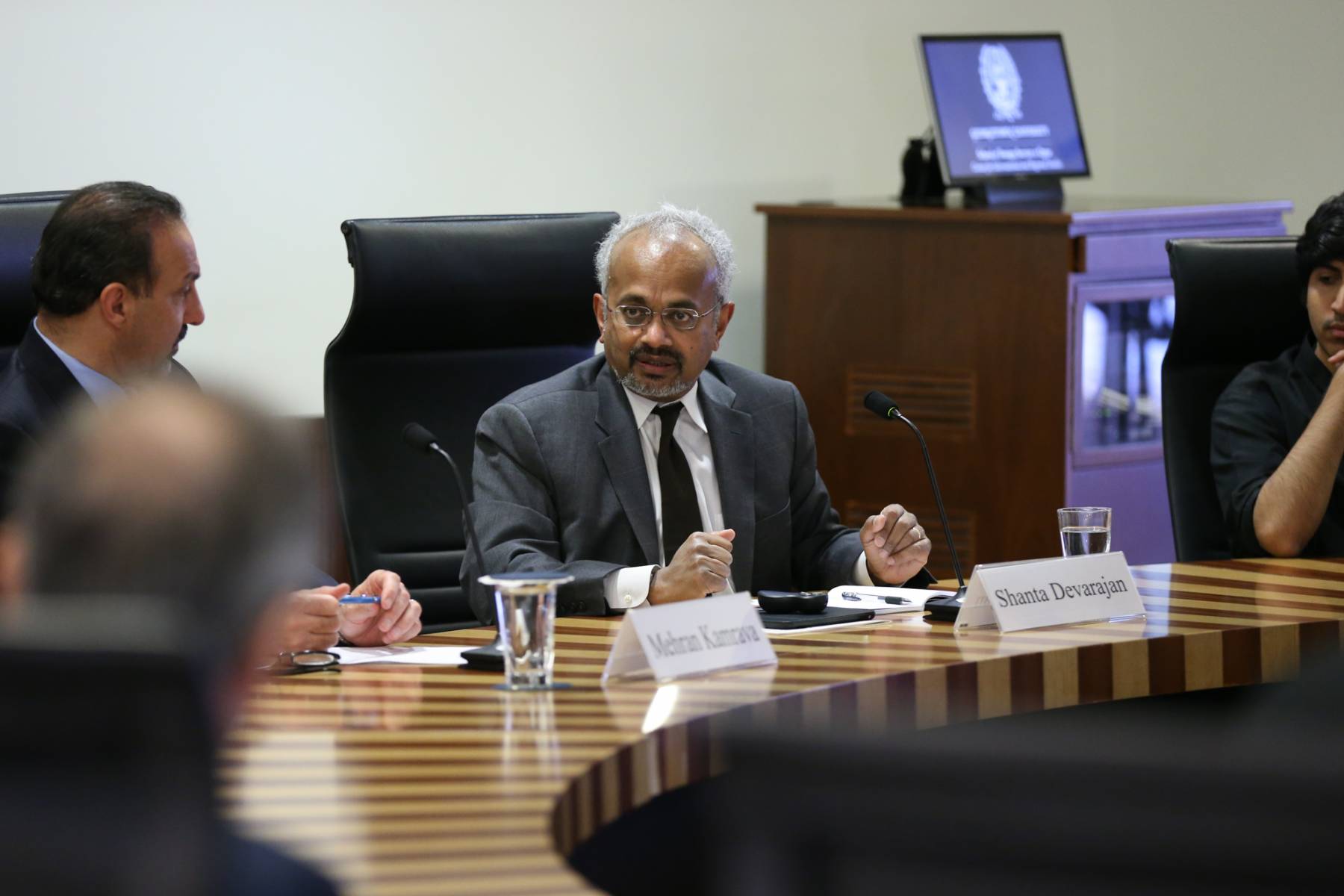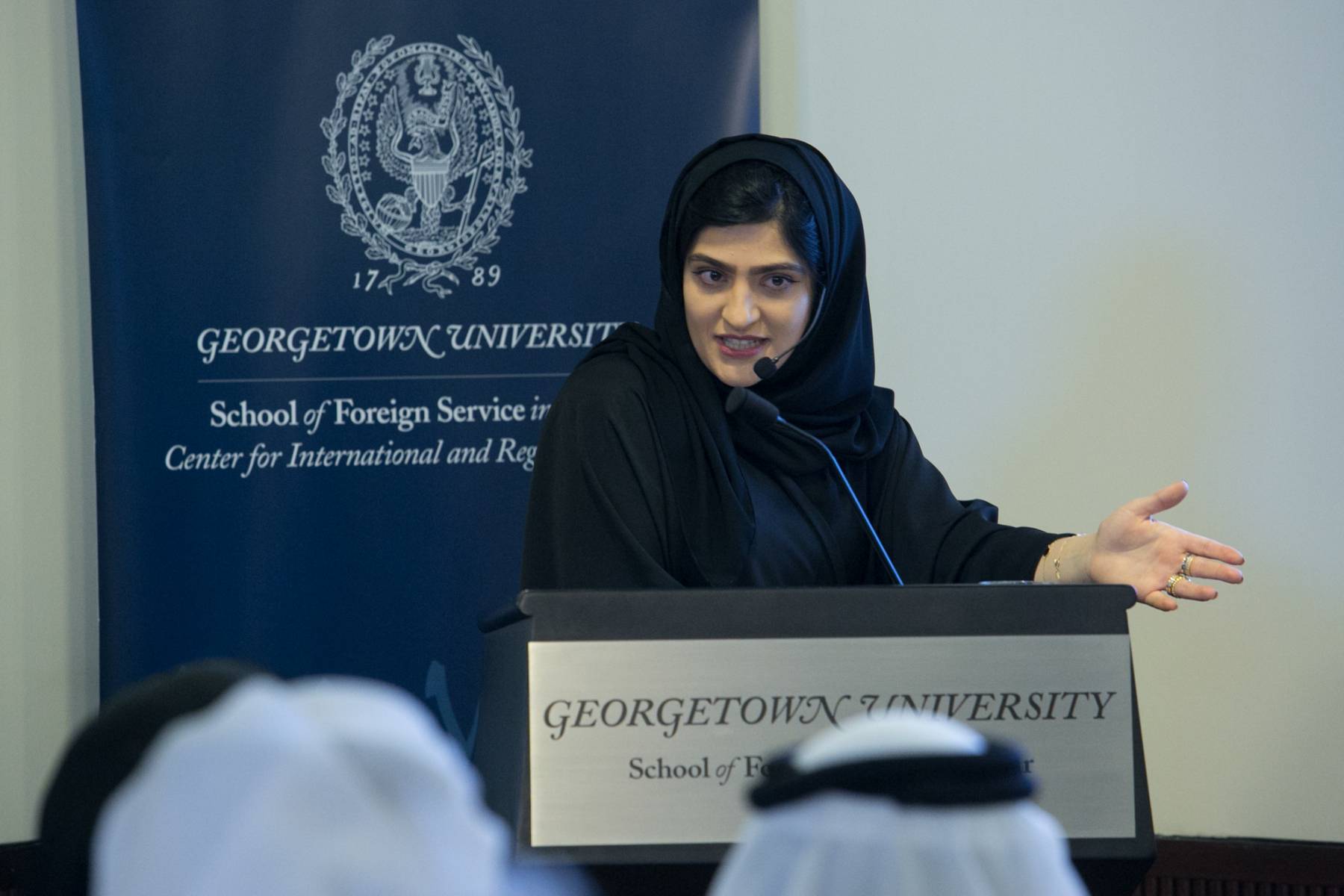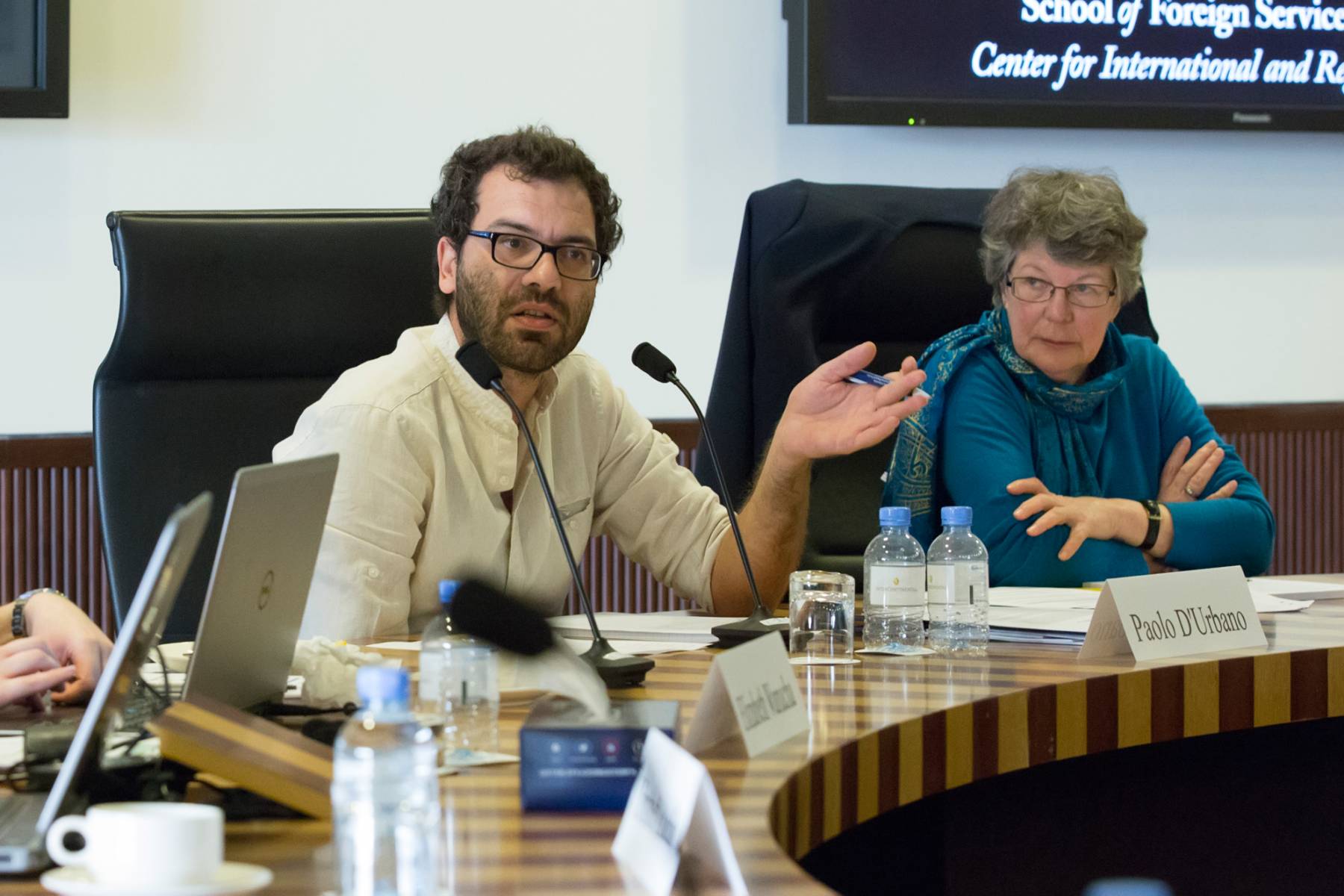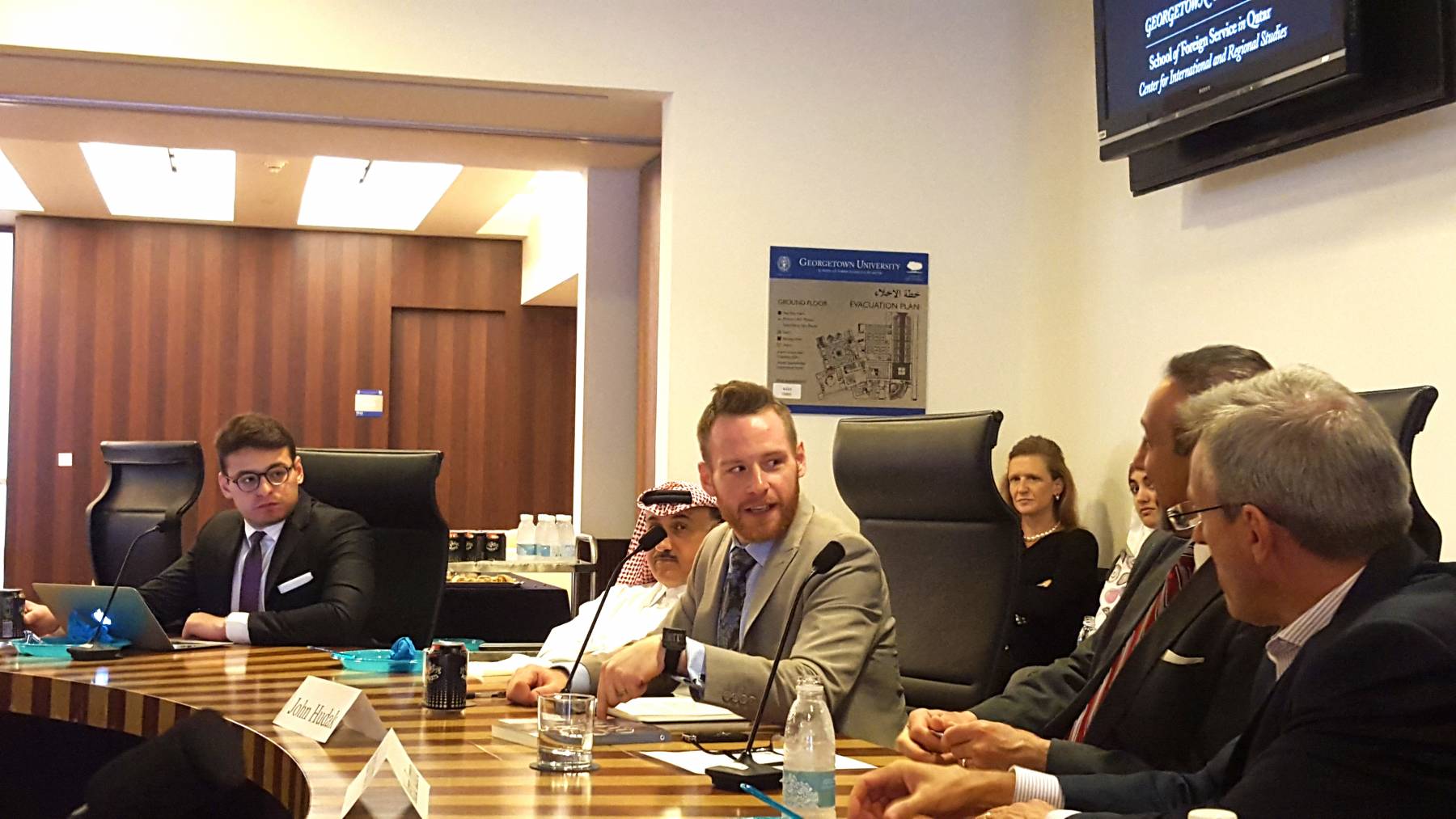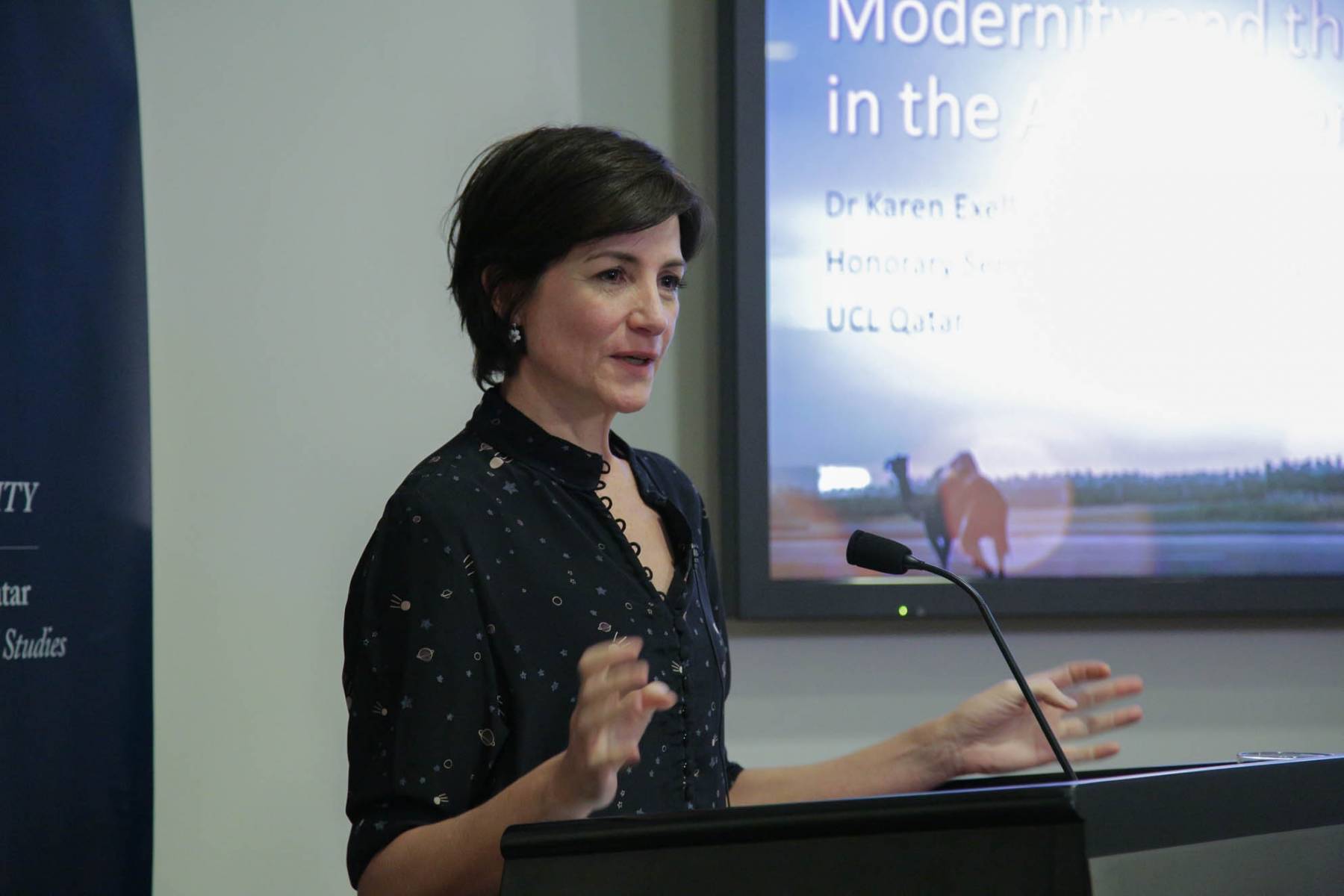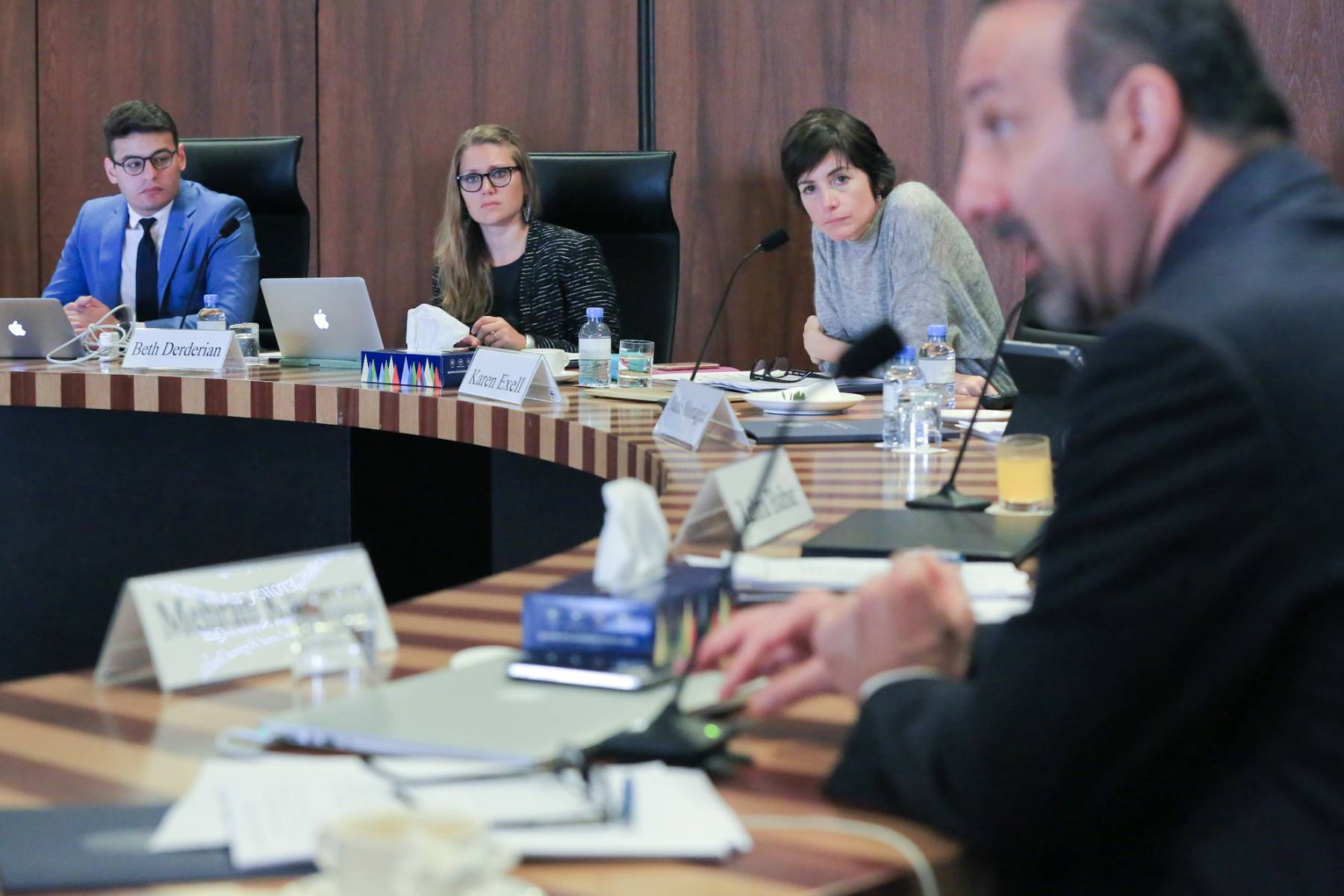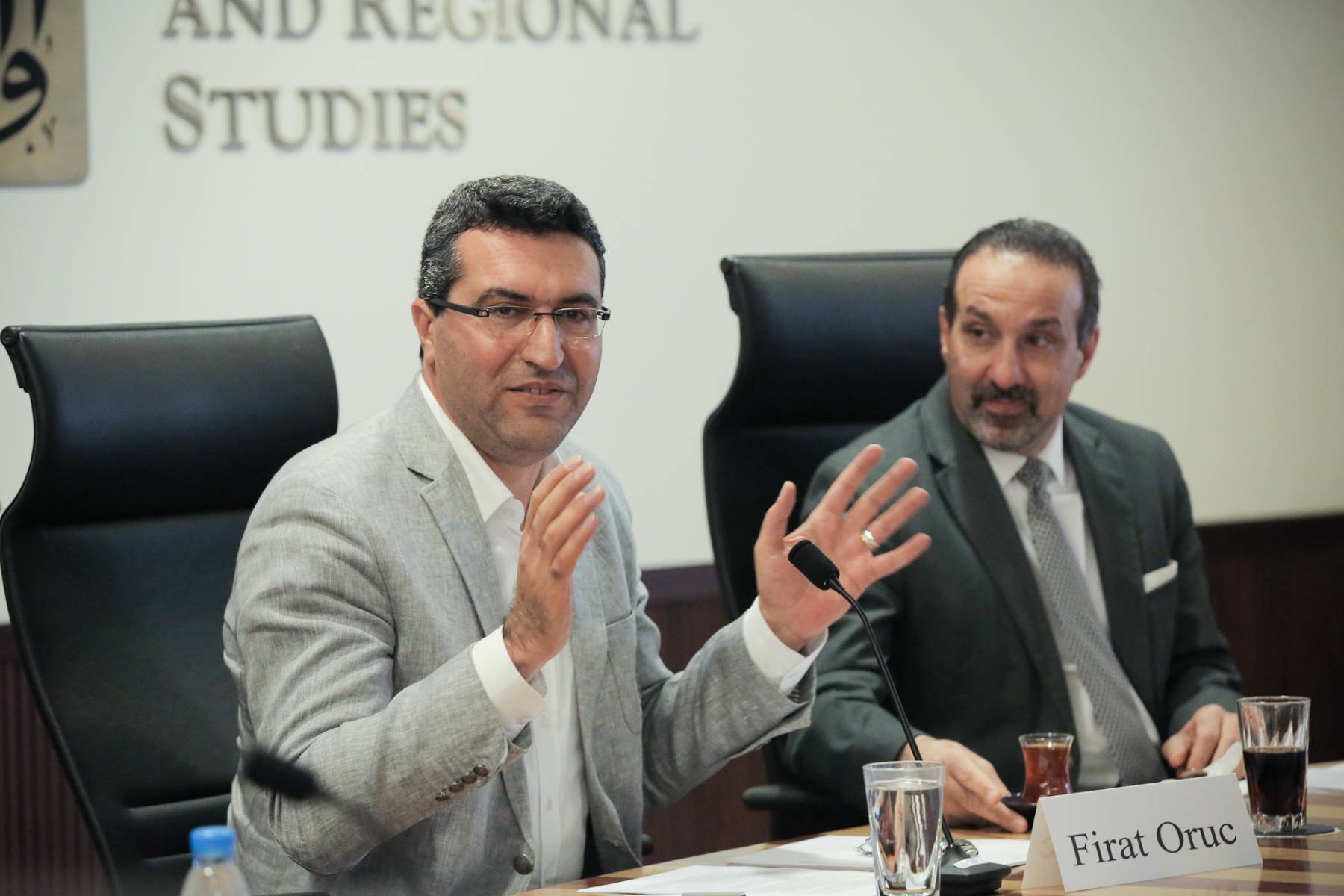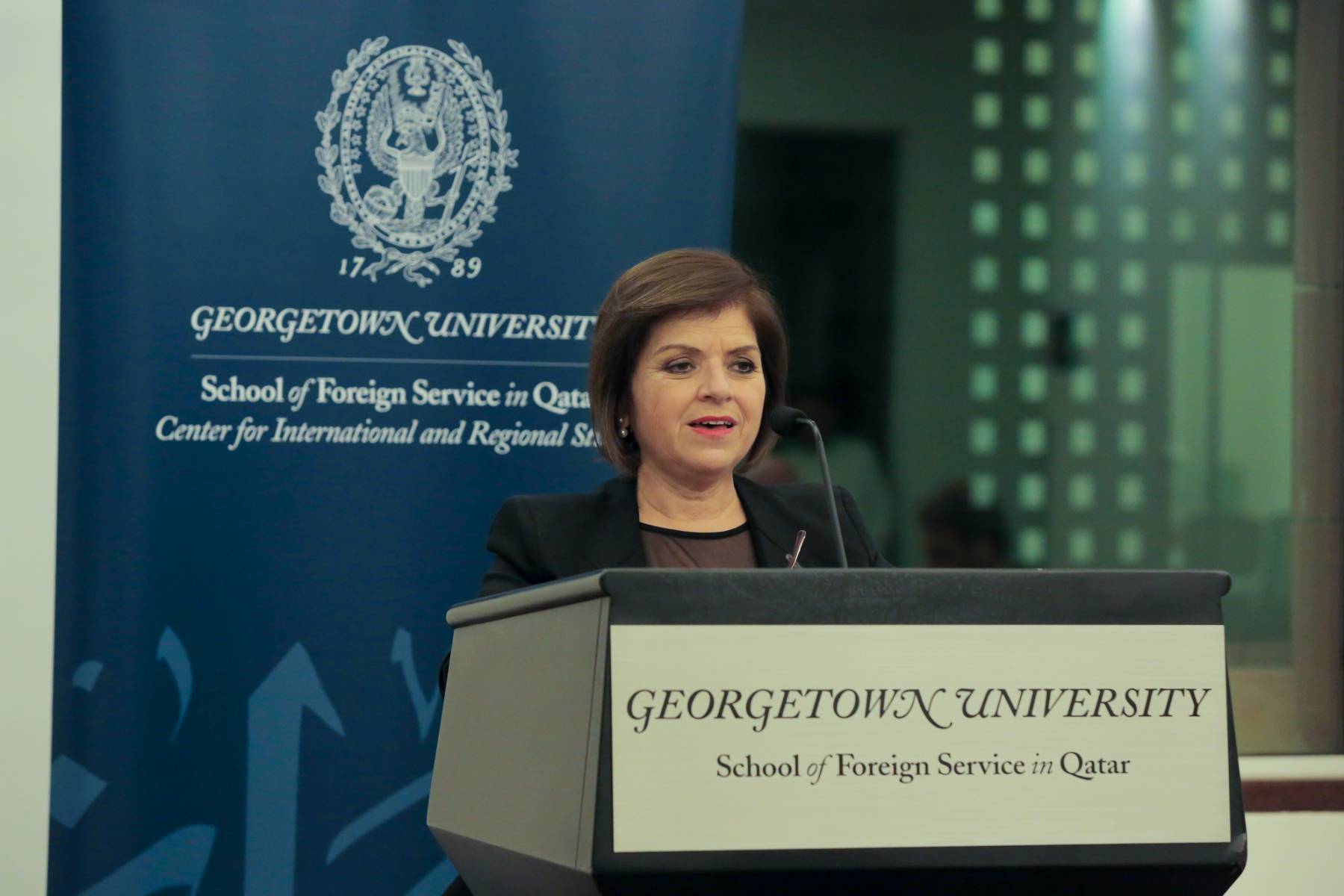CIRS Hosts Reception for Dean Nonneman
Dr. Gerd Nonneman, Professor of International Relations & Gulf Studies, holds an M.A. in Middle East Politics (1985) and Ph.D. in Politics (1993) from the University of Exeter. He also holds Licentiates in Oriental Philology (Arabic) (1980) and Development Studies (1981) from the University of Ghent, Belgium. Prior to his appointment as dean, he served as Professor of International Relations & Middle East Politics, and Al-Qasimi Professor of Gulf Studies at the University of Exeter, where he has also directed the Institute of Arab & Islamic Studies and the Center for Gulf Studies. A former Executive Director of the British Society for Middle Eastern Studies (BRISMES), he is also a Council member of the World Congress for Middle Eastern Studies (WOCMES). Aside from his academic work, he has worked in the private sector in the Gulf region, and acted as a consultant to a range of companies, NGOs, governments and international institutions. Dean Nonneman is Associate Editor of the Journal of Arabian Studies (Routledge). Among his recent publications are: Al-Mamlaka Al-'arabiyya al-sa'udiyya fi-l-mizan (updated Arabic edition: Beirut: Center for Arab Unity Studies, 2012); ‘Yemen, Saudi Arabia and the Gulf States: Elite Politics, Street Protests and Regional Diplomacy’ (Chatham House, 2011); ‘Europe, the US, and the Gulf after the Cold War’, in V. Mauer & D. Möckli (eds.), European-American Relations and the Middle East: From Suez to Iraq (Routledge, 2010); ‘Terrorism and Political Violence in the Middle East and North Africa: Drivers and Limitations’, in A. Siniver (ed.), International Terrorism post 9/11 (Routledge, 2010); ‘Political Reform in the Gulf Monarchies: From Liberalisation to Democratisation? A Comparative Perspective’, in A. Ehteshami & S. Wright (eds.), Reform in the Middle East Oil Monarchies (Reading: Ithaca Press, 2008); Saudi Arabia in the Balance: Political Economy, Society, Foreign Affairs (New York University Press, 2006); 'EU-GCC Relations', (Gulf Research Center, 2006); and Analyzing Middle East Foreign Policies (Routledge, 2005).
